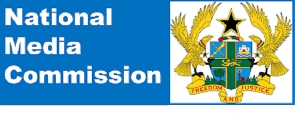The National Media Commission is advocating more regulation of the media space, especially online and social media, to help curb fake news, misinformation and disinformation in the country.
This call is important because liberalism has permeated the world to the extent that people always are quick to allude to their rights and freedoms to do things and less careful about the corresponding responsibilities.
The situation is made worse when certain individuals and groups go to the defence of the erring individuals or organisations, particularly human rights groups.
Now, behaviour is not guided by morality but by rule of law, rights and freedoms because people question what morality really is and whatever it is, it 6yvaries from place to place and so whose morality should guide behaviour?
Fake news, misinformation and disinformation are the products of sinister behaviour because those who put them out have their own agenda to achieve certain goals.
Fake news, as the name implies, usually refers to news or stories on the internet that are not true.
Those who put out fake news use technology and social media to make it look like proper or true news.
It is difficult to decipher fake stories from the real ones because usually some credible sources like state officials, particularly politicians, and organisations like ministries and political groups are quoted.
The situation is made worse if such sources are truly behind the fake news but pretend to be oblivious of what has been put out, all because there is an agenda.
Fake news is often intended for people who are most likely to agree to reinforce it.
The danger is that if it is not found out immediately and debunked or challenged, with time it assumes the character of a real story and media houses which fail to cross-check the facts and figures may likely publish and reinforce it.
Once this happens, the public is most likely to consider it real and consume it.
Since the media influences opinions, readers and listeners may use the unsuspected fake news to make statements or form opinions about some personalities and things or situations.
This is more dangerous in the case of children and other young people because it becomes difficult for them to discard what they have already accepted as the truth.
That is to say that fake news can be harmful to both those it is about and those consuming it. Fake news contains disinformation, which is false information created and shared to deliberately cause harm.
On the other hand, misinformation is usually misleading information disseminated without a deliberate intent to cause harm, but as a result of lack of diligence or failure to ascertain its veracity.
What this means is that even credible media houses can carry misinformation and the cure can be rejoinders and corrections by the media house, accepting responsibility for the error(s).
Though fake news, disinformation and misinformation must be checked, we think particular attention must be paid to fake news and disinformation because of their negative effects, which can be indelible.
Click to view details



Editorial News of Friday, 24 March 2023
Source: ghanaiantimes.com.gh

















